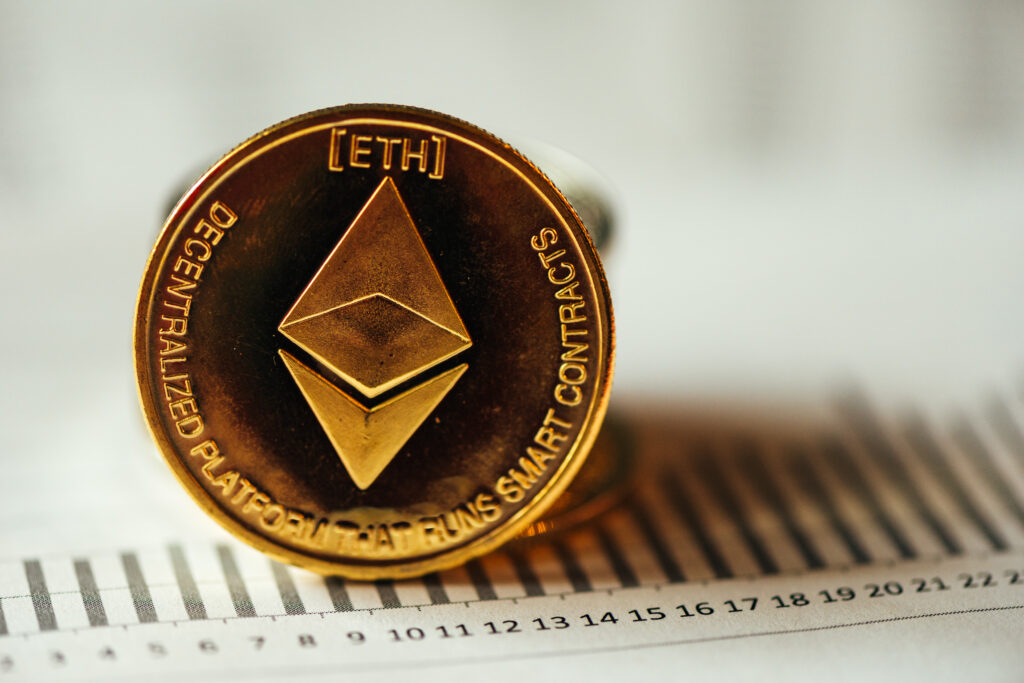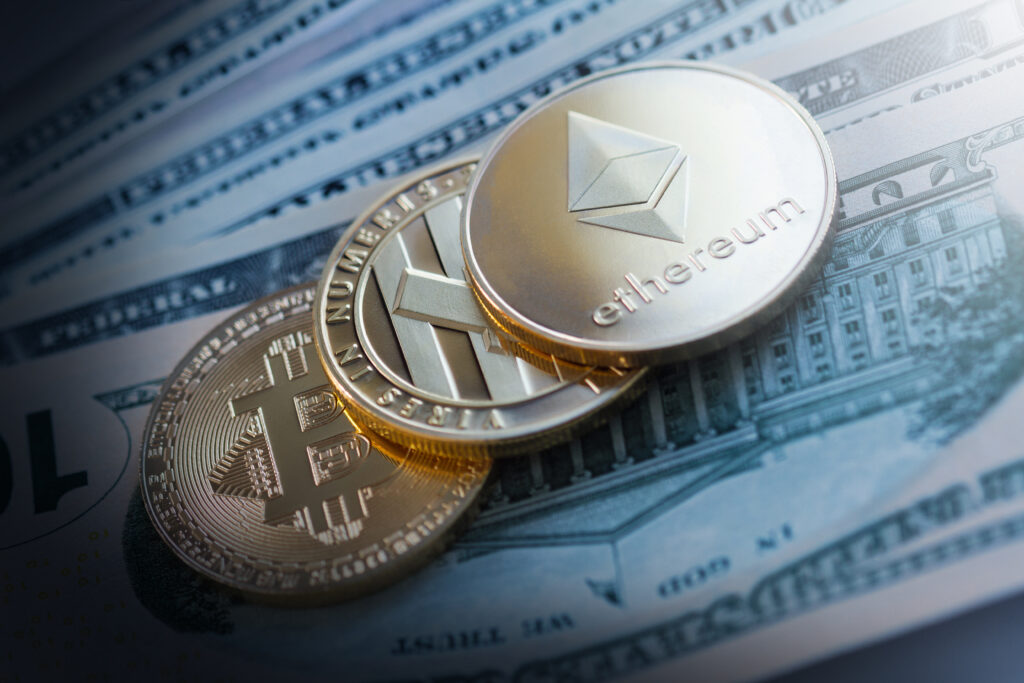If you spend even a split second online, then the word Ethereum shouldn’t be a foreign term to you. Although Ethereum is one of the most popular concepts in the crypto world, and it might appear to be just another cryptocurrency to you but in reality, it is so much more and holds more potential than just being a regular cryptocurrency.
In this article, we’ll dive into what Ethereum is really about.

Ethereum began as a concept and it sprung out of the head of a 19-year-old math genius Vitalik Buterin and he was supported by seven other masterminds in the creation of Ethereum, namely: Mihai Alisie, Anthony Di Iorio, Amir Chetrit, Charles Hoskinson, Gavin Wood, Jeffrey Wilcke and Joseph Lubin.
Despite being so popular, many people aren’t aware of the fact that Ethereum is a whole decentralized computer network powered by a cryptocurrency called Ether. Ethereum and Ether are often interchanged but in reality, they are two different things. While Ethereum is a decentralized computer network that also runs applications, Ether, on the other hand, is the cryptocurrency that fuels Ethereum. Ether can be traded in for the cash value it’s worth, and today it is one of the most highly valued cryptocurrencies out there.
Ethereum has three layers:
- Hardware layer- Ethereum Blockchain Network
- Software layer- Solidity
- Application Layer- Decentralized Applications or dApps
Ethereum Hardware Layer or the Ethereum Blockchain
The Ethereum hardware layer is a peer-to-peer network of computers that perform transactions and keep them organized in a shared ledger. This results in a distributable database that can keep a record of all the information that is shared in the network. Within the network, each computer is called a node and these validate incoming transactions and also organizes these transactions into blocks. Then these blocks get broadcasted to the Ethereum network.
Each transaction can include value and information. The value is expressed in “Ether” which as you can remember is the digital currency of the Ethereum network. The information would be the code that can transmit data and launch actions.
Ethereum Software Layer: Solidity
The Ethereum platform is flexible which made it very popular among users. Ethereum has been designed to extend the use of Bitcoin and build a broader, more general blockchain. The Ethereum software layer has been built to allow the transaction of any value in any shape or form. These transactions can be currencies, copyright policies, any owned assets, and anything really that you can think of. The Ethereum software layer is flexible to do it all. In order to be able to perform such flexible transactions a new programming language was created, it goes by the name “Solidity”. Using this language, users can create programs like “smart contracts”.
A fun fact about the Ethereum software is that it allows any user to create new digital currencies or tokens. These newly created tokens can be exchanged by any Ethereum user. This enables the use of a wide range of applications from digitalizing reward points to the creation of new economic markets.
All of the Ethereum codes that are in use are open source and are available on Github. Being open-source allows anyone to write a new code and share it online. New features or strengthening of the overall platform can also be done by fixing bugs. This drags as a conclusion that the Ethereum platform is somewhat self-developing since users are continuously adding new codes.
With that said, anyone can use their computers to process transactions on the network. This is done by running some codes on the respective laptop. An advantage of running nodes is that you get rewarded in Ether which as you might know by now is a valuable asset.
Ethereum application layer: dApps
The combination of the Ethereum hardware and software layers enable the platform to work as a global, decentralized computer on which third-party applications can be executed. The Ethereum platform has a large community and is still growing day by day thanks to the openness and transparency of the platform. This community is working constantly on the extensions of relevant decentralized applications. These applications have many advantages and benefits that users can benefit from:
Transparency
Transparency is always important, in any area of life, but it is especially important in an online environment where almost nothing is transparent. On the contrary, the Ethereum platform is. That means that anyone can read the code and make sure the application performs everything that is promised. In addition, all transactions are public and can be tracked.
Resilience
Once an application is up and running on the Ethereum platform, it is difficult to stop it or even impossible.
Quality coding
Because the codes on the platform are public, hackers have a better opportunity to get into anything, this means that the bugs have to be fixed quickly. The fact that the bugs are fixed quickly and effectively yields quality and reliable coding.

What is gas in relation to Ethereum?
Gas simply describes the amount of work that is being done in the Ethereum Virtual Machine. Gas has an Ether cost that everyone has to pay to be able to make a change to the Ethereum blockchain. The cost of gas isn’t fixed to an amount of Ethereum. The price is adjustable so that the Ethereum Virtual Machine operational costs don’t become too expensive or too cheap up to a point where the network would be full of unreasonable transactions.
What can you do with Ethereum?
Ethereum is built to run smart contracts which are applications that run exactly as they were programmed without any downtime, censorship, fraud, or third-party interference. As we have briefly touched on this subject before, the Ethereum platform is flexible, thus allowing the user to perform numerous transactions on the platform. However, this is not all that Ethereum can do. With the platform, you can build applications like games, cloud-based operating systems, document notarizations, decentralized news verification, job markets, messaging platforms, and social networks. These are some of the things that you can build on the Ethereum platform, but as you already know, the platform is flexible, so you just have to get creative.
If you are wondering what you can do with Ether, the currency itself, we got you. First, since it is a currency, it can be traded like any other currency. It can also be used as an operator for dApps as a user, you can use Ether to fuel the operation of these apps.

How is Ethereum different?
Ethereum is a whole Virtual Machine, not just a currency. With flexibility, it allows the users to perform a wide variety of commands. Ether, the currency that powers Ethereum, was influenced by Bitcoin upon creation, and now has the second-highest market and price right after Bitcoin.
The block time, the speed at which a block transaction can be executed is faster on the Ethereum network. This means that more transactions can be added to the Ethereum blockchain in less time.
Ether mining rewards are consistent, unlike other currency rewards. The reason behind the consistent rewards is the fact that Ether won’t reach a hard cap. Ether has a cap of 18 million per year and it is created to ensure the regeneration of Ether to rule out misuse, loss, and other errors.
Another aspect of Ethereum that sets it apart from the rest is the way it treats the stale blocks. Ethereum provides partial rewards to the stale blocks, the platform also calls it “ Uncle Blocks”. This is because this way they offset the power that is inherent in large mining pools.
How stable is Ethereum?
It is hard to predict the exact stability of Ethereum, but one thing is sure, according to past statistics, when Bitcoin was down the value of Ethereum was also down and when the value of Bitcoin has increased so did the value of Ether. The stability also depends on who you ask. Lately, the value growth of Ethereum has been lagging compared to the other cryptocurrencies but many users are predicting growth in the future. However, some say that it is unlikely that Ethereum will catch up to Bitcoin, making it a runner-up to Bitcoin. On the other hand, many of Ethereum’s potentials are not discovered yet and not used as of today, and the non-monetary fuel for application for dApps in the Ethereum Virtual Machine can push it into higher territories.
Ether could be valuable in long term, especially considering that there is no limit on the amount of Ethereum that will be generated. Ether’s value could decrease if the natural loss doesn’t balance out the creation anymore, but that’s a long shot and it’s highly unlikely to happen in the future.
To put it short, since Ether is the fuel of a stable environment, it is more stable than other cryptocurrencies today. It is also centered to be valuable. As the online space realizes the stability and value of Ether the value and stability will grow more and more. In short, if you would like to invest in anything, then Ether is a safe bet as of now and in the foreseeable future.
A very important question that all investors have in mind: Should I invest in Ethereum? The answer totally depends on you, to be honest. Nobody, not even we can tell you how to use your money. We can give you all the facts and based on that make suggestions that can potentially lead to success, but the last and final call is yours. To know if you should invest in Ethereum first you need to do your research and get to know the current situation in regards to the Ethereum network. Know what you get yourself into so you don’t freak out at the first sign of fluctuation or any big changes that occur on the platform.
Last but not least, if this has sparked your interest, and you would like to get started with Ethereum, here is how you could take your first steps. Before you get started, you should figure out what you would like to use it for, what you would want to do with your Ether. Whether you want to develop dApps, you want to invest, or do something completely different, these require totally different approaches.
So, before you ever start, get to know the community and what you can do with and on the Ethereum platform. Then, when you know what you would like to do take the time to watch tutorials and read relevant information to establish and execute all that you want to do in the Ethereum platform.




